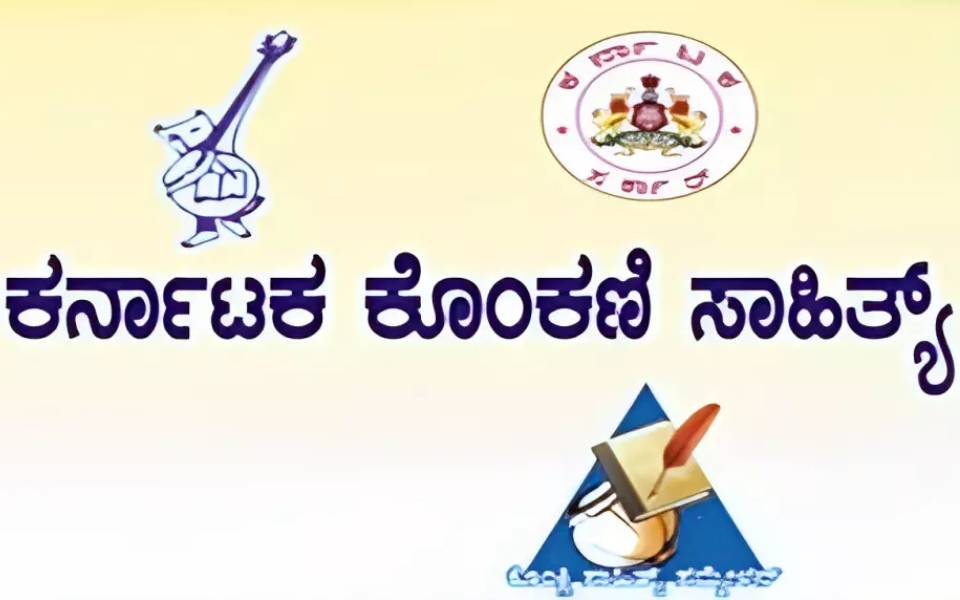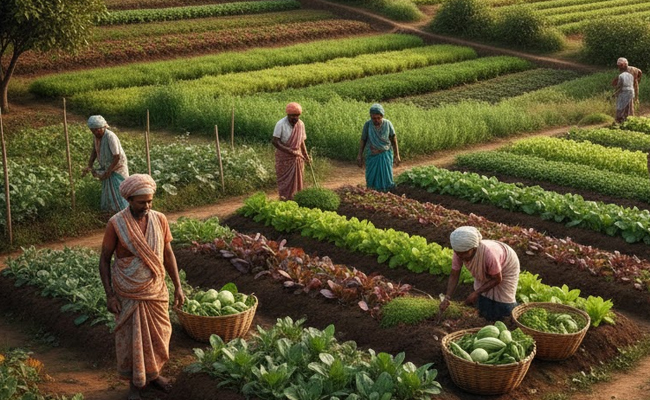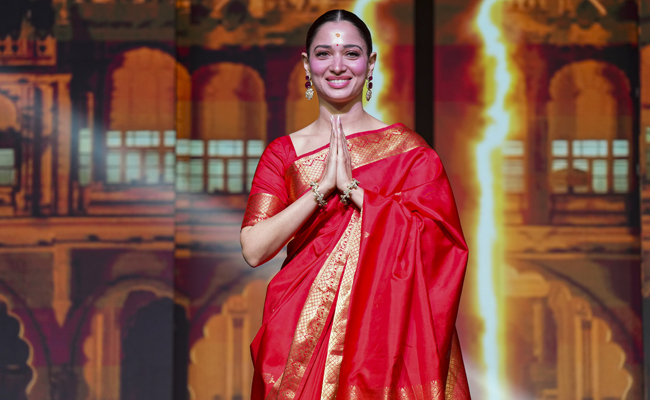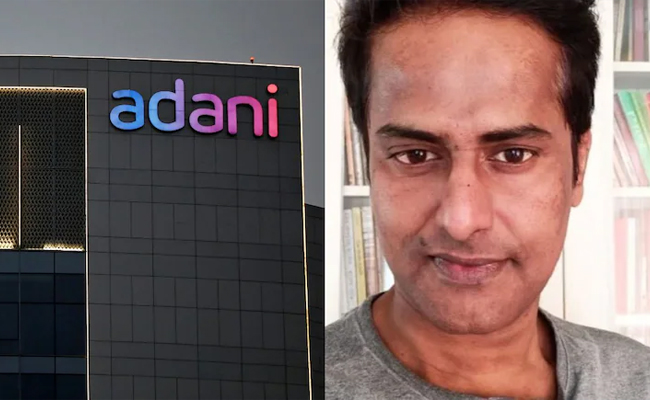Mangaluru: The 'Karnataka Konkani Sahitya Academy,' established in 1994 to foster the growth of Konkani language, literature, art, and culture, is now approaching its third decade of existence. However, a significant imbalance is evident within the Academy, as the Konkani-speaking Roman Catholic (RC) and Gowda Saraswat Brahmin (GSB) communities dominate its ranks. In contrast, the remaining 40 communities that speak Konkani, and are consequently members of the Academy, are notably underrepresented, raising concerns about equal representation within the institution.
Furthermore, the office-bearers of the Academy are under scrutiny, facing allegations of completely sidelining certain Konkani-speaking backward member communities when appointing individuals to key positions within the organization.
Consequently, members of these marginalized communities have mobilized to exert pressure on Karnataka Chief Minister Siddaramaiah. They are urging him to intervene and guarantee that they are not deprived of opportunities during the appointment of the president and other office-bearers of the Academy this year. This call for action stems from the Chief Minister's consistent assurances that individuals from all languages and communities will receive equal opportunities, both in the allocation of grants and in appointments to significant positions.
Konkani, recognized as predominant in Karnataka and Goa through the 8th Amendment to the Indian Constitution, is a language written in both Kannada and Devanagari scripts. On April 21, 1994, under the leadership of Veerappa Moily, the Konkani Sahitya Academy was established by the government, with its central office located in Mangaluru. The Academy's outreach extended to various districts, including Uttara Kannada, Dakshina Kannada, Udupi, Hubballi-Dharwad, Shivamogga, Chikkamagaluru, Hassan, Kodagu, Mysuru, Bengaluru, and Kasaragod. These districts are home to diverse Konkani-speaking communities, and the establishment of the Academy aimed to promote and preserve the language and its cultural heritage in these regions.
The Karnataka state government has identified over 40 Konkani-speaking communities, all of which are contributing to the all-round development of Konkani. Despite this diverse linguistic landscape, spanning over 30 years since its establishment, the Academy has seen a total of 10 presidents appointed by the state government. Strikingly, out of these ten, four have hailed from the Roman Catholic (RC) community and an equal number from the Gowda Saraswat Brahmin (GSB) community. Notably, all eight of these RC-GSB presidents have exclusively originated from either Dakshina Kannada or Kasargod districts.
Other than this, one president was from the Kharvi community of Kundapur taluk of Udupi district and the 10th belonged to the Komarapanth community of Uttara Kannada district. An additional feature that stands out regarding the presidents of the Konkani Academy is that all of them were men, which, many feel, reflects a complete neglect of women belonging to Konkani communities.
In agreement with the concerns raised about the undue prominence given to the Roman Catholic and GSB communities within the Academy, Kallacchu Mahesh R Nayak stated, "The allegations are entirely valid and have persisted regardless of the political party in power. The other 40 Konkani-speaking communities have been consistently overlooked by the Academy. Only once have we seen a member of a minority community, RP Nayak, lead the Academy as President. Moreover, there are accusations that individuals from communities apart from Roman Catholic and GSB lack the necessary qualifications to head the Academy. These individuals could still be appointed to lower positions on the Academy board before being considered for higher roles. Only then can we achieve true social justice. If not, the majority and financially affluent communities will continue to thrive, leaving other communities struggling at the bottom. It is imperative to address and rectify this social imbalance urgently."
Aravind Shanbhogue of Kumta expressed his concern on the matter, stating, "The Academy has witnessed a pattern where certain members occupy top positions repeatedly, which is not a healthy practice. This recurrent trend, especially when it involves the violation of the Academy's rules, must come to an end. Communities such as Kudubi, Mesta, Siddi (ST), and Mahar (SC) have been conspicuously absent in terms of representation within the Academy. It is crucial that they are given due consideration, at the very least, starting from this year."
Mamdu Ibrahim Suleiman, a respected writer and retired school teacher from Shiroor, representing the Daldi community, expressed sorrow over the persistent neglect faced by his community at the hands of the Konkani Academy. He lamented, "The Daldi community, with a population of around 21,000, has significantly contributed to the advancement of the Konkani language across various fields. However, we have been consistently overlooked when it comes to appointing office-bearers. Only one individual from our community has been granted a position on the board so far. It is imperative that we, too, receive proper representation in the Academy, considering all these factors."
Addressing the disregard faced by Scheduled Caste Konkani communities, Vinayak Naik, an organizer from Sirsi, voiced his concerns, stating, "Despite having over 1 lakh members from various Scheduled Caste communities in Karnataka who speak Konkani, our presence is completely overlooked when it comes to appointments for the Academy's top positions. Instead, preference is given to majority and financially influential communities, which can exert pressure on the government."
Members of Konkani-speaking communities, apart from the Roman Catholic and GSB groups, are expressing hope and making a firm demand for improved representation within the Konkani Academy under the leadership of the Siddaramaiah-led government. They emphasize the necessity of acknowledging the valuable contributions made by their communities to the Konkani language and literature.
The Nawayath community holds a distinctive position in society, boasting a language with a rich history spanning over 1,000 years. This unique language, as well as the community itself, cannot be equated with any other language or community based on cultural or literary grounds.
In light of this, the native speakers of Nawayati have consistently advocated for the creation of a distinct academy dedicated solely to their language, rather than incorporating it into the Konkani Sahitya Academy. Members of the community, particularly the seniors, have expressed unanimous agreement on the necessity of exposing younger generations to their native culture. They view this exposure not only as a means of preservation but also as a vital way to conserve their unique heritage for the future.
The 'Nawayath Mehfil,' established 23 years ago, aimed to champion and promote the Nawayati language, along with its distinctive lifestyle and cultural identity. The call for a dedicated Nawayati Academy, however, has roots that trace back at least three decades. Native speakers have persistently advocated for the establishment of a separate academy to safeguard their language, asserting the importance of preserving its unique identity and preventing it from becoming assimilated into other languages.
Atique-ur-Rahman Shabandri, the Founder-General Secretary of 'Nawayat Mehfil' in Bhatkal, shared with Varthabharati, "A team from New Delhi has conducted a comprehensive study of the script and other linguistic aspects of Nawayati during their visit to Bhatkal. It's essential to understand that our language extends beyond the confines of Bhatkal; it holds prominence in several other parts of India as well. Establishing a distinct literary academy dedicated to supporting the language and fostering its development and growth is imperative. We are confident that the Karnataka government will take the necessary steps to address this issue."
List of Konkani-speaking communities:
Gowda Saraswat Brahmin (GSB), Daivajna Brahmin, Rajapura Saraswat Brahmin (RSB), Christian- Catholic, Charodi Christian, Syrian Christian, Kudubi, Kharvi, Siddi Christian, Siddi Muslim, Siddi Hindu, Nawayath, Daldi, Mesta, , Achari, Bhandary, Kumbar, Vhajanthri, Madakara Bhandary (Rendar), Vaishyavaniya, Gomanthaka (Devali), Gomanthaka (Kalavantha), Chitrapura Saraswat Brahmin, Padthi, Madivala, Komar, Govali, Kelshi Napitha, Gabith, Cheptekar Saraswat, Chitpavan Brahmin, Gudigar, Mharya Ambedkarite, Maratha, Jamayati, Gavade, Chambara, Gosavi, Sherugar, Kudala Deshasta Adya Gowda Brahmin, Balavalikar Saraswat Brahmin.
List of persons who have serverd as Presidents of the Konkani Sahitya Academy so far:
- Dr. VJP Saldanah (Mangaluru)
- BV Baliga (Mangaluru)
- Basti Vamana Shenoy (Bantwal)
- Alexander F D'Souza (Mangaluru)
- Eric Ozario (Mangaluru)
- Kundapura Narayana Kharvi (Kundapura)
- Kasaragod Chinna (Kasaragod)
- Ronald S Castelino (Mangaluru)
- RP Nayak (Uttara Kannada)
- Dr. K Jagadish Pai (Karkala)
Let the Truth be known. If you read VB and like VB, please be a VB Supporter and Help us deliver the Truth to one and all.
Nuremberg (PTI): India is the place for large-scale organic production and the country is keen to collaborate with the EU to strengthen this ecosystem to cater to rising demands, Commerce Secretary Rajesh Agrawal said here on Tuesday.
Agrawal also said that India's organic products exports have grown threefold over the last 10 years, and the government now aims to triple them again over the next five years.
"India is the place" to serve the world as a good organic food basket, he said, adding that India has 150.3 million hectares of agricultural land under cultivation.
He said that the organic ecosystem is growing very fast in the country, as today, 3 per cent of India's cultivation is organic.
In India, 4.7 million hectares of land is under organic cultivation, with 2.4 million farmers practising it, and it is only increasing by the day, he said.
The Secretary was speaking at the inauguration of Biofach 2026. About 100 exhibitors from 20 Indian states, including Assam, Meghalaya, and Kerala, are here to showcase their organic food products at the world's leading trade fair Biofach show (February 10-13).
He informed that India is emerging as a credible supplier of organic food, both within India and outside.
"I see this happening in a much faster manner. So if world needs the state for organic production, I think India is the place, and we like to work with all of you to see how we can improve the Indian organic food ecosystem to serve both the Indian rising demand within India and also the rising demand in two of our biggest markets," he said.
He called for creating credibility around organic foods. There is a need to ensure trust and credibility around the certification of these products.
India started with the national programme for organic production way back in 2001 and that was designed to adopt the international standards of organic goods.
"And now we are bringing in cooperatives in a big way," he said, adding that cooperatives can bring in and aggregate farmers to create good, viable organic ecosystem in various villages across the country.





